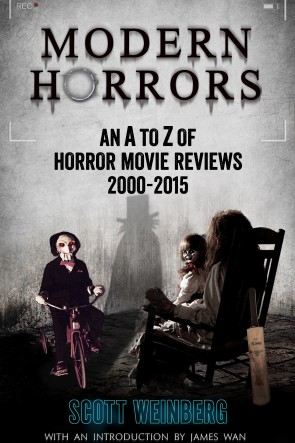Exclusive Review: MINDSCAPE, aka ANNA (2014){0}
There are numerous mysteries to be explored in Spanish director Jorge Dorado’s feature debut, released in the UK under its original title Mindscape. Mysteries such as: why was the film retitled with the more prosaic monicker Anna in the US? (Not that there’s anything wrong with that: after all, the film’s star, Mark Strong, was born Marco Giuseppe Salussolia.) Why does the DVD cover say “From the director of Orphan” when Orphan director Jaume Collet-Serra serves as a producer on Dorado’s film? Why does Strong (who was born in London from Austro-Italian stock) affect a disastrous Ameeeerrrrican accent? (British co-stars Brian Cox and Saskia Reeves are similarly saddled, but Cox is better at it – although “Jaaahn” gets old real fast – and Reeves doesn’t have many lines.) Where on Earth is the film supposed to be set? (It was shot in Spain and Montréal, Canada, but nobody bothered to put license plates on any of the cars, so the entire film has a bizarre statelessness that isn’t helped by the protagonist’s accentual affectations.)
Of course, these prosaic mysteries are not the ones we are supposed to be concerned with while watching the film, but they do serve as annoying distractions from what is in many respects a devious, densely-plotted mind-bender with a typically, uh, robust performance from Strong in what is effectively his first leading role in a feature film, and terrific support from Taissa Farmiga, youngest sister of Orphan star Vera.
Strong plays John, a “memory detective”, which is apparently a kind of shrink who walks around in other people’s memories (in a style familiar to viewers of TV’sHannibal), and whose visions are therefore easily translated to film. As we meet John, he has just returned to active duty with the Mindscape agency, following the death of his infant son and suicide of his beloved wife, and is dispatched by Mindscape boss Sebastian (Cox) with helping to unlock the memories of 16-year-old heiress Anna (Farmiga), who has gone on hunger strike after being confined to her room following her expulsion from an expensive boarding school. John has no trouble getting Anna to eat; what is more troubling are the repressed memories of her role in the poisoning of three classmates, and the near-fatal fall of her nurse (Luther’s Indira Varma). The longer John spends wandering around in the landscape of Anna’s mind, the more he begins to uncover. But is Anna, or perhaps her memories, playing tricks on him?
Although a tad over-written (by screenwriter Guy Holmes in his first script sale), the serpentine plot is guaranteed to keep you guessing, while director Dorado and cinematographer Óscar Faura (The Orphanage, Julia’s Eyes) ensure the film is always beautiful to look at. The filmmakers arguably throw too many plot points at the wall, hoping to make some of them stick, and there are a few schoolboy errors along the way, such as when a photograph of Game of Thronesactor Noah Taylor turns up early on, so that you spend almost the entire film waiting for him to show up. Whether or not Anna deserves to be committed must be left for the film itself to reveal; what is clear is the commitment of the cast and crew to a labyrinthine plot which is worth exploring, even if the ending leaves you wishing you could call a “memory detective” to explain it to you.
★★★








